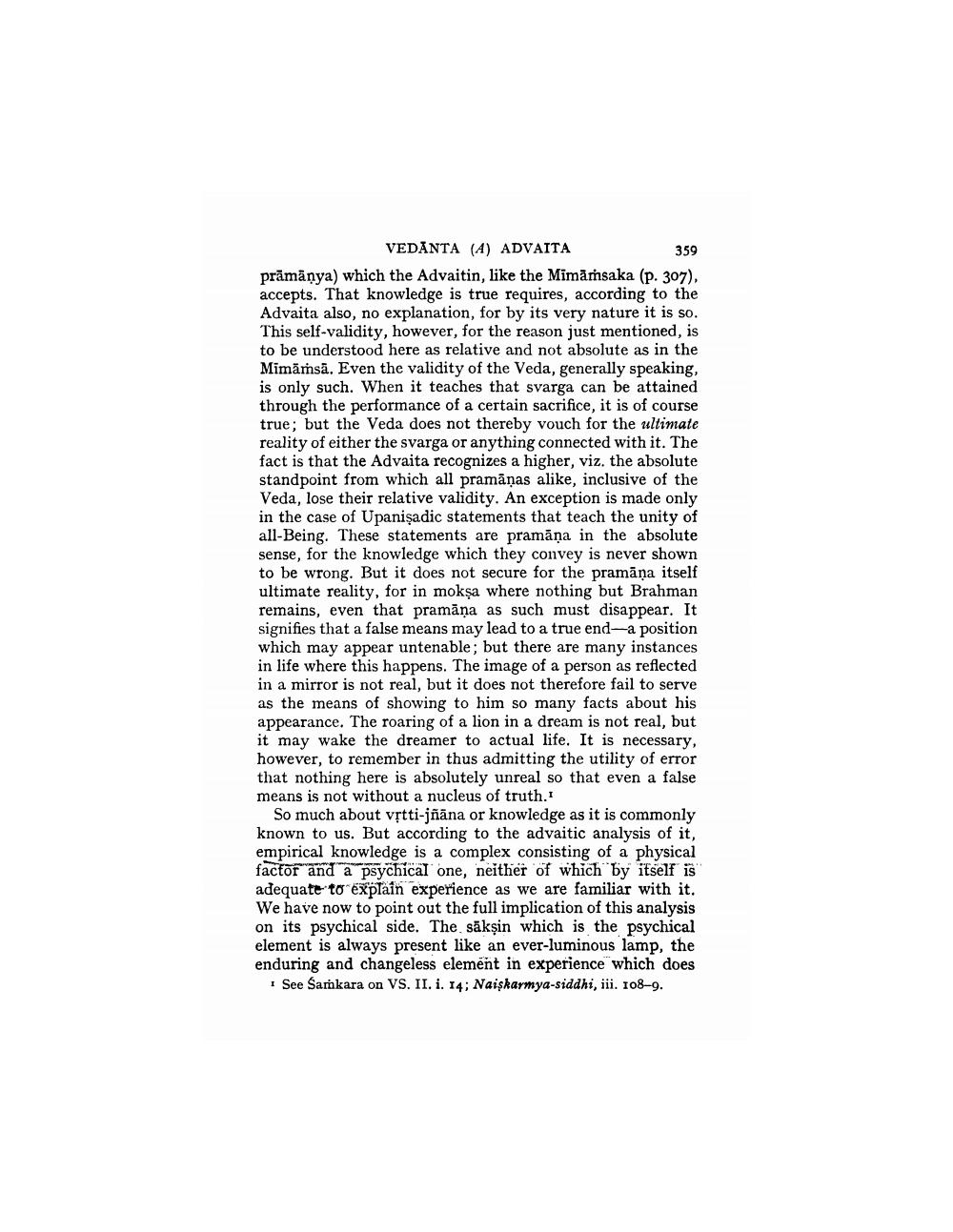________________
VEDANTA (A) ADVAITA
359 prāmānya) which the Advaitin, like the Mimārsaka (p. 307), accepts. That knowledge is true requires, according to the Advaita also, no explanation, for by its very nature it is so. This self-validity, however, for the reason just mentioned, is to be understood here as relative and not absolute as in the Mimāṁsā. Even the validity of the Veda, generally speaking, is only such. When it teaches that svarga can be attained through the performance of a certain sacrifice, it is of course true; but the Veda does not thereby vouch for the ultimate reality of either the svarga or anything connected with it. The fact is that the Advaita recognizes a higher, viz. the absolute standpoint from which all pramānas alike, inclusive of the Veda, lose their relative validity. An exception is made only in the case of Upanişadic statements that teach the unity of all-Being. These statements are pramāņa in the absolute sense, for the knowledge which they convey is never shown to be wrong. But it does not secure for the pramāna itself ultimate reality, for in moksa where nothing but Brahman remains, even that pramāna as such must disappear. It signifies that a false means may lead to a true end-a position which may appear untenable, but there are many instances in life where this happens. The image of a person as reflected in a mirror is not real, but it does not therefore fail to serve as the means of showing to him so many facts about his appearance. The roaring of a lion in a dream is not real, but it may wake the dreamer to actual life. It is necessary, however, to remember in thus admitting the utility of error that nothing here is absolutely unreal so that even a false means is not without a nucleus of truth.
So much about vstti-jñāna or knowledge as it is commonly known to us. But according to the advaitic analysis of it, empirical knowledge is a complex consisting of a physical factor and a psychical one, neither of which by itself is adequate to explain experience as we are familiar with it. We have now to point out the full implication of this analysis on its psychical side. The sākşin which is the psychical element is always present like an ever-luminous lamp, the enduring and changeless element in experience which does
See Samkara on VS. II. i. 14; Naişkarmya-siddhi, iii. 108-9.




